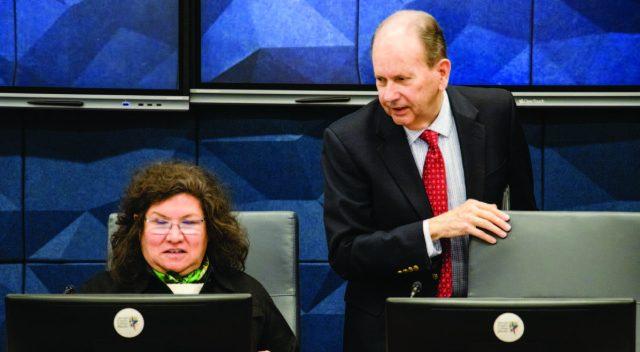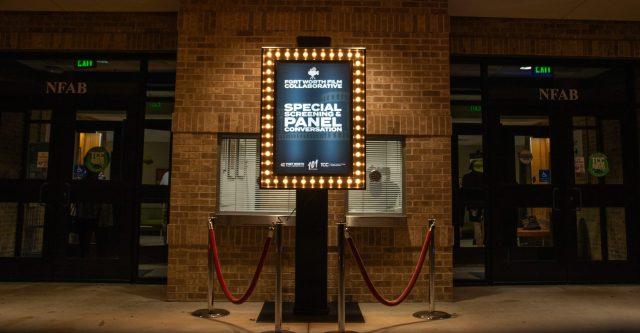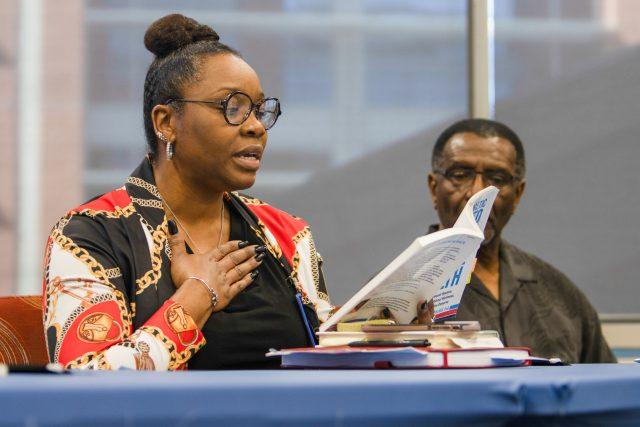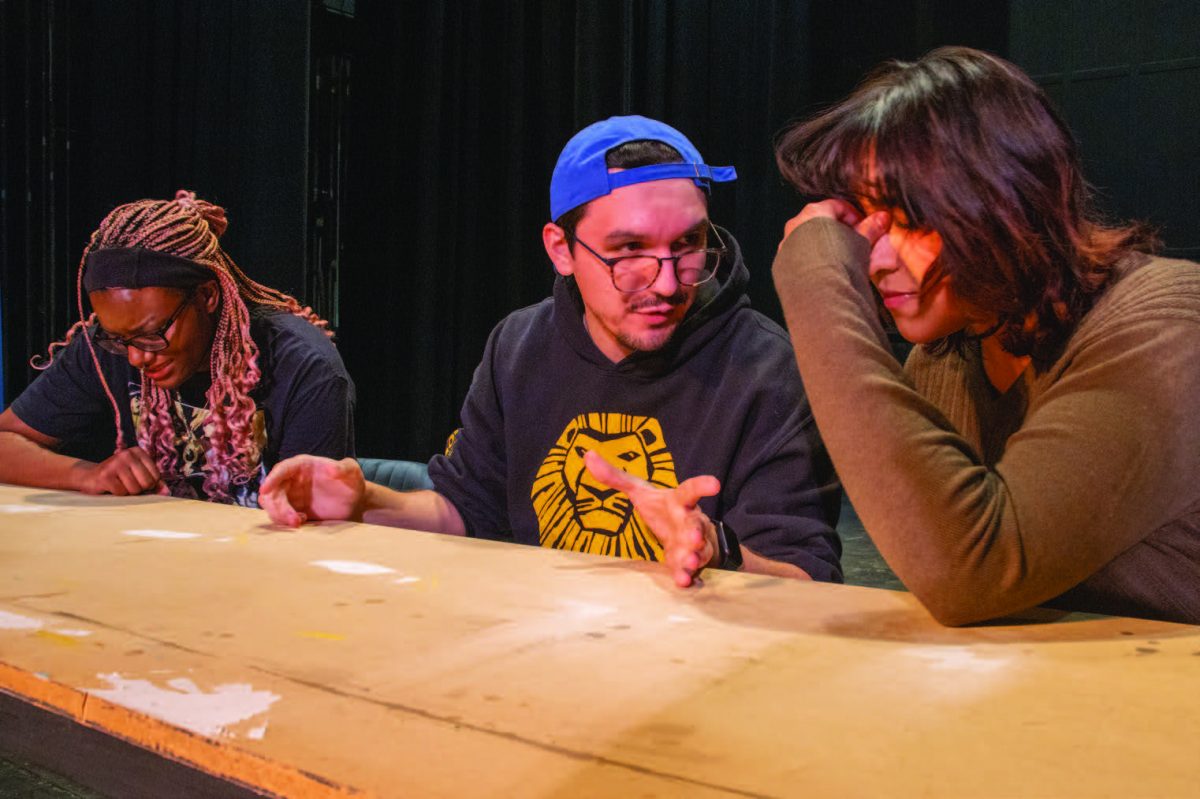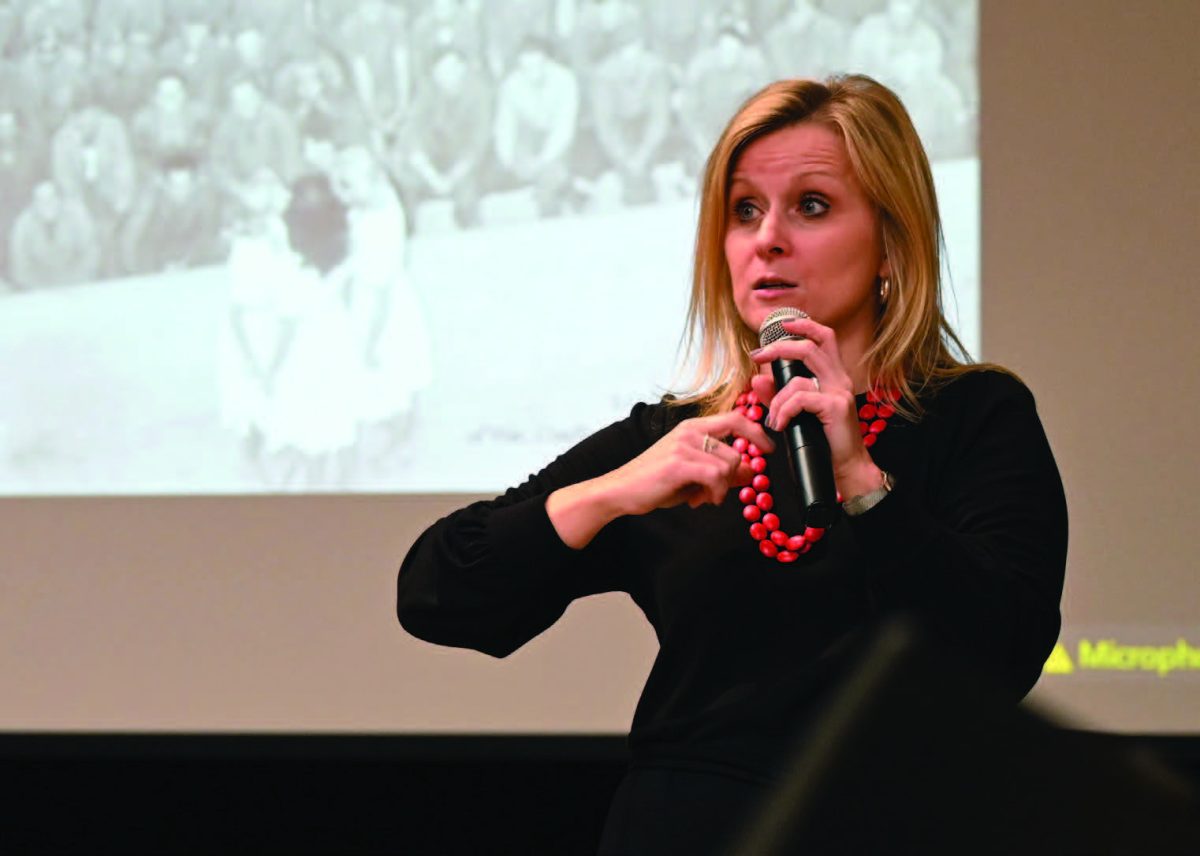HOPE SMITH
editor-in-chief
hope.smith393@my.tccd.edu
TCC has made progress in integrating stronger internet access with the Wireless Technology Expansion Project.
In the Feb. 22 board meeting, trustees approved an action item that would transfer funding for the previously planned growth of Wireless Access Point infrastructure, starting in 2021. WAPs are network devices meant to connect wireless devices to the internet. This will also include Wi-Fi enabled calling.
Todd Kreuger, chief information officer, stressed that the efficiency of the network is a priority to the college and is making efforts to ensure students have the access they need.
“Reliable and appropriately robust wireless technology is critical to student success, to student experience and to student safety,” he said at the Feb. 15 work session.
This means that if a student ends up in a compromising position, Kreuger said that the Wi-Fi enabled calling could help sideline the possibility of a student being somewhere that they cannot connect through their cell.
The transferred amount in the action item was $4,357,210 from the Operations and Maintenance Fund balance to the Technology Capital Fund balance. Originally, the amount of WAPs was calculated based on square footage. This assessment was made by General Datatech LP, who recommended adding newer WAPs.
The current progress of the Wireless Technology Expansion project has reached and been finalized in the Trinity River Main Campus buildings. According to Kreuger, 80% of NE Campus has been updated, South Campus at 50%, and the new buildings on NW Campus have been updated, as well as the new buildings in SE Campus.
“After collaborating with appropriate stakeholders, we will be completing a wireless site analysis in order to determine where to locate the outdoor access points,” he said.
In total, there have been 1,300 new installations, replacing 200 existing wireless access points and improved reliability required over 260,000 ft. Of new cabling, according to the presentation from the work session.
Kreuger explained that the issues students may be experiencing with the Wi-Fi come from the fact that they might not connecting to the right Wi-Fi network.
If someone connects to TCCD-Public, they will be automatically logged off after four hours. The recommended network is TCCD, and Kreuger said that the current users of TCCD-Public have been cut in half.
Designating the money to the fund now, rather than later was explained by Chief Financial Officer Pamela Anglin as this action helps keep it in one place so that it is preserved for the project.
“You can always move it back, but it’s [reallocating the full amount] going ahead and moving it out of the Operating Balance into this other fund balance so that it’s set aside for these projects, and we don’t forget and use it for something else,” she said at the work session.
In other news, it was approved at the board meeting that the engagement of General Datatech be increased for the Disaster Recovery Data Center Build Out Project for an amount not to exceed $248,820. A Disaster Recovery Data Center is mandated by Texas Code 202 which outlines security and cyber security requirements for state agencies and institutions of higher education.


















